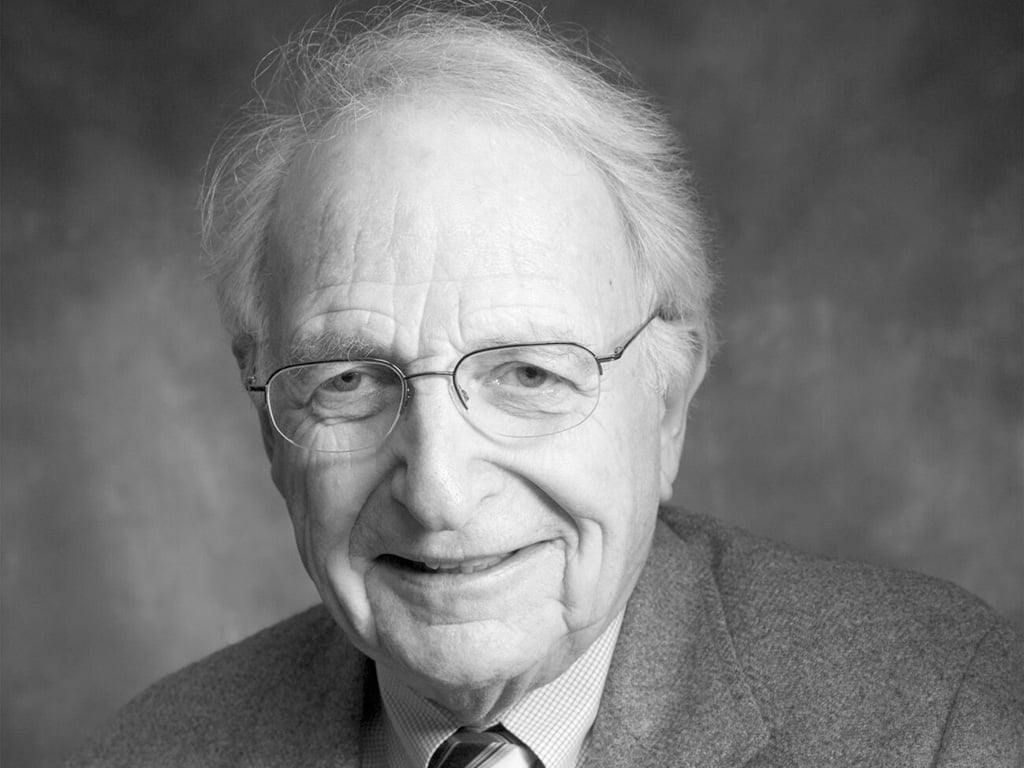
Dr. Leonard Cobb (Courtesy photo)
Dr. Leonard Cobb passed away on February 14. He will be most remembered for being one of the founders of the Seattle Fire Medic One program and for helping to create bystander CPR training.
“We are sad to announce the passing of Dr. Leonard Cobb, a luminary in the field of prehospital care for patients with cardiac disease,” the Seattle Fire Department and Harborview Medical Center said in a joint statement on behalf of the Cobb family. “His achievements are many, but perhaps the most notable was helping establish in 1970 the Seattle Medic One paramedic program at Harborview Medical Center and a year later, the creation of bystander CPR training for nonmedical professionals. Both of these programs have earned worldwide acclaim and inspired fire and emergency medical service departments to follow in Seattle’s footsteps.
“The Seattle Medic One program’s goal is to provide emergency care comparable to what a patient would receive by a trained physician onsite. In the late 1960s, Dr. Cobb, director of Cardiology at Harborview Medical Center, took note of work being done in Europe with prehospital cardiac patients that was saving lives.”
What Others Are Saying
“Dr. Leonard Cobb was a forward-thinking innovator who transformed the way we approach delivering public safety and emergency care. He pioneered a partnership between the Seattle Fire Department and medical providers to launch Medic One, which set the standard for excellence in pre-hospital emergency care and has become a national model. Our city is grateful for his contributions which have helped save countless lives, and our thoughts are with his family at this difficult time.” – Mayor Bruce Harrell
“Dr. Leonard Cobb was a legend in the EMS world as one of the founding fathers of the response system here in King County. Over many years, he’s offered numerous gifts to our region, but beyond his exceptional intelligence and vision, warm demeanor and dogged perseverance, he was a person who could bring disparate people together and work together for a common purpose. I’m personally so grateful to have had the opportunity to work with Dr. Cobb over the years and witness the deep impact he’s had in all of our lives.” – Michele Plorde, Emergency Medical Services Division Director, Public Health-Seattle & King County
“Dr. Cobb’s and Fire Chief Vickery’s contributions to EMS cardiac care and CPR training changed the Fire Service and how we serve our community. Dr. Cobb’s forward thinking and innovative contributions changed our profession for the better and has now stood the test of time for over 50 years!” – Fire Chief Harold D. Scoggins, Seattle Fire Department
“Dr. Cobb relentlessly sought to improve the system of emergency cardiac care. He was willing to consider innovative approaches to delivering lifesaving therapy inside people’s homes. From the very first patient, Dr. Cobb sought to review what went well and what might be done better the next time. His humility and sharp assessment encouraged others to believe in his vision. I am grateful to have known and learned from him.” – Dr. Michael Sayre, Medical Program Director, Seattle Fire Department
“Dr. Leonard Cobb transformed our approach to emergency care. More than 50 years ago, he pioneered a partnership between the medical community and the Seattle Fire Department to “co-opt” firefighters to expand their responsibilities to become what we now know as EMTs and paramedics. This model has proven remarkably efficient and effective, and importantly has saved thousands of lives in our region alone and served as a strategy for many other communities around the US and the world. Dr. Cobb possessed a tremendous ability to engage many: public safety organizations such as Fire Departments, traditional medical providers such as physicians and nurses, and a spectrum of community perspectives. He leveraged this good will and collaboration with substantial clinical insight to advance public health. Dr. Cobb was committed to systematic measurement as a means to improve patient care, so he would implement new ideas to improve treatment for time-sensitive medical emergencies such as cardiac arrest, myocardial infarction, and major trauma. We will miss his discerning questions, his quick wit, and his warm smile. He was one-of-a-kind.” – Dr. Tom Rea, Medical Program Director, King County Emergency Medical Services

